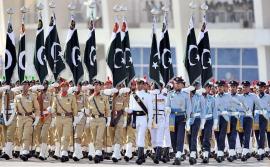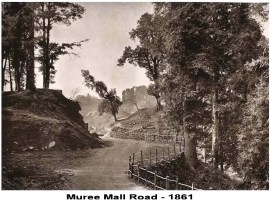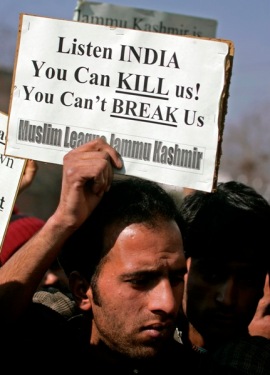Sultan Salahuddin Ayubi & The Crusades : (Documentary film)
July 1, 2010 1 Comment
Sultan Salahuddin Ayyubi, the hero of hundreds of battles, was the person who for twenty years braved the storm of the Crusaders and ultimately pushed back the combined forces of Europe which had come to swarm the Holy Land. The world has hardly witnessed a more chivalrous and humane conqueror.
The Crusades represent the maddest and the longest war in the history of mankind, in which the storm of savage fanaticism of the Christian West burst in all its fury over the Muslim World.The Crusaders met with initial success and conquered a major part of Syria and Palestine, including the Holy city of Jerusalem. But their victories were followed by such brutalities and massacres of innocent Muslims which eclipsed the massacres of Genghes Khan and Hulaku.
90 years later…Salahuddin Ayyubi becomes the Sultan of Syria and Egypt.At that time, there was a truce between the Sultan and the Franks in Palestine but, according to the French historian Michaud, `the Mussalmans respected their pledged faith, whilst the Christians gave the signal of a new war’. Contrary to the terms of the truce, the Christians attacked a Muslim caravan passing by his castle, massacred a large number of people and looted their property.Sultan Salahuddin Ayyubi was now free to act. By a skilful manoeuvre, Salahuddin entrapped the powerful enemy forces near the hill of Hittin in 1187 and routed them with heavy loses. The Sultan did allow the Christians to recover and rapidly followed up his victory of Hittin. In a remarkably short time, he reoccupied a large number of cities which were in possession of the Christians including Nablus, Jericko, Ramlah, Caesarea, Arsuf, Jaffa and Beirut. Ascalon, too, submitted after a short siege and was granted generous terms by the kind-hearted Sultan.
The Sultan now turned his attention to Jerusalem which contained more than sixty thousand Crusaders. The Christians, could not withstand the onslaught of the Sultan’s forces and capitulated in 1187. The humanity of the Sultan towards the defeated Christians of Jerusalem procures an unpleasant contrast to the massacre of the Muslims in Jerusalem when conquered by the Christians about ninety years before.
When the Sultan captured Jerusalem in 1187, he gave free pardon to the Christians living in the city. Only the combatants were asked to leave the city on payment of a nominal ransom. In most of the cases, the Sultan provided the ransom money from his own pocket and even provided them transport. A number of weeping Christian women carrying their children in their arms approached the Sultan and said `You see us on foot, the wives, mothers and daughters of the warriors who are your prisoners; we are quitting forever this country; they aided us in our lives, in losing them we lose our last hope; if you give them to us, they can alleviate our miseries and we shall not be without support on earth’. The Sultan was highly moved with their appeal and set free their men. Those who left the city were allowed to carry all their bag and baggage. The humane and benevolent behaviour of the Sultan with the defeated Christians of Jerusalem provides a striking contrast to the butchery of the Muslims in this city at the hands of the Crusaders ninety years before. The commanders under the Sultan vied with each other in showing mercy to the defeated Crusaders.
The fall of Jerusalem into the hands of the Muslims threw Christendom into violent commotion and reinforcements began to pour in from all parts of Europe. The Emperors of Germany and France as well as Richard, the Lion-hearted, king of England, hurried with large armies to seize the Holy Land from the Muslims. They laid siege to Acre which lasted for several months. In several open combats against the Sultan,, the Crusaders were routed with terrible losses.
In 1193,Sultan Salahuddin Ayyubi passed away in Damascus.He was one of the most humane and chivalrous monarchs in the annals of mankind. In him, nature had very harmoniously blended the benevolent and merciful heart of a Muslim with a matchless military genius. The messenger who took the news of his death to Baghdad brought the Sultan’s coat of mail, his horse one dinar and 36 dirhams which was all the property he had left. His contemporaries and other historians are unanimous in acknowledging Salahuddin as a tender-hearted, kind, patient, affable person— a friend of the learned and the virtuous whom he treated with utmost respect and beneficence. `In Europe’, says Phillip K. Hitti, `he touched the fancy of the English minstrels as well as the modern novelists and is still considered the paragon of chivalry’.















































Recent Comments